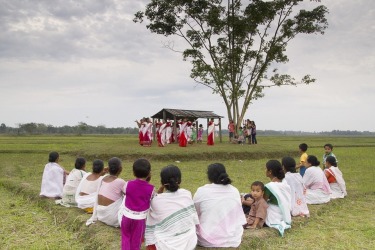
The Assam government approved a draft bill on Sunday, 9 November, aimed at banning polygamy in the state, triggering political and legal debate. The Assam Prohibition of Polygamy Bill, 2025, is scheduled for presentation in the Legislative Assembly on 25 November. Chief Minister Himanta Biswa Sarma described the measure as “a necessary reform to protect Muslim women.” Violations of the proposed law could result in up to seven years in prison.
The ban, however, will not apply universally. Tribal populations and areas governed by the Bodoland Territorial Council, Karbi Anglong Autonomous Council, and Dima Hasao Autonomous Council, regions protected under the Sixth Schedule of the Constitution, are exempt. In practice, the legislation would mainly affect Assam’s non-tribal population, which is largely Muslim, raising concerns that the measure could be targeted. The chief minister also announced that Muslims residing in autonomous areas before 2005 would be exempt, though analysts suggest this clause is largely symbolic.
The government plans to create a compensation fund to support women who may face economic or social difficulties as a result of the law. “No woman will face economic hardship because of this law,” said Sarma, presenting the measure as a step towards women’s empowerment.
Civil society organisations and legal experts, however, argue that the bill forms part of a broader Bharatiya Janata Party (BJP) strategy to introduce a Uniform Civil Code (UCC), which would replace current religious laws. Critics warn that such measures could reduce legal pluralism and undermine religious freedom guaranteed by the Constitution.
Currently, polygamy is permitted under Muslim personal law, while Hindu personal law banned the practice in the 1950s under the Hindu Code Bill, which also standardised rules on inheritance, adoption, marriage, and divorce. This historical contrast explains why state-level attempts to prohibit polygamy often provoke debate over the balance between women’s rights and religious liberty.
In contrast to Assam’s approach, the High Court of Kerala issued a ruling on 30 October 2025 that seeks to harmonise faith and constitutional rights. The court ruled that a first wife must be informed and heard before a Muslim man can register a second marriage under the Kerala Registration of Marriages (Common) Rules, 2008. The judge emphasised that while Islamic law allows polygamy, it requires fairness and transparency between spouses, principles aligned with the Constitution.
The court further stated that if the first wife objects, registration of the second marriage must be suspended and the matter referred to a civil court. This ruling ensures that Muslim women have procedural and moral rights, offering participation and protection in matters historically dominated by silence.
Kerala’s approach offers an alternative to criminalising polygamy, focusing instead on consent and constitutional rights. Assam’s proposed law and Kerala’s ruling highlight two different ways India is grappling with the challenge of reconciling religious diversity with principles of justice and equality.
Adapted from Asia News.




